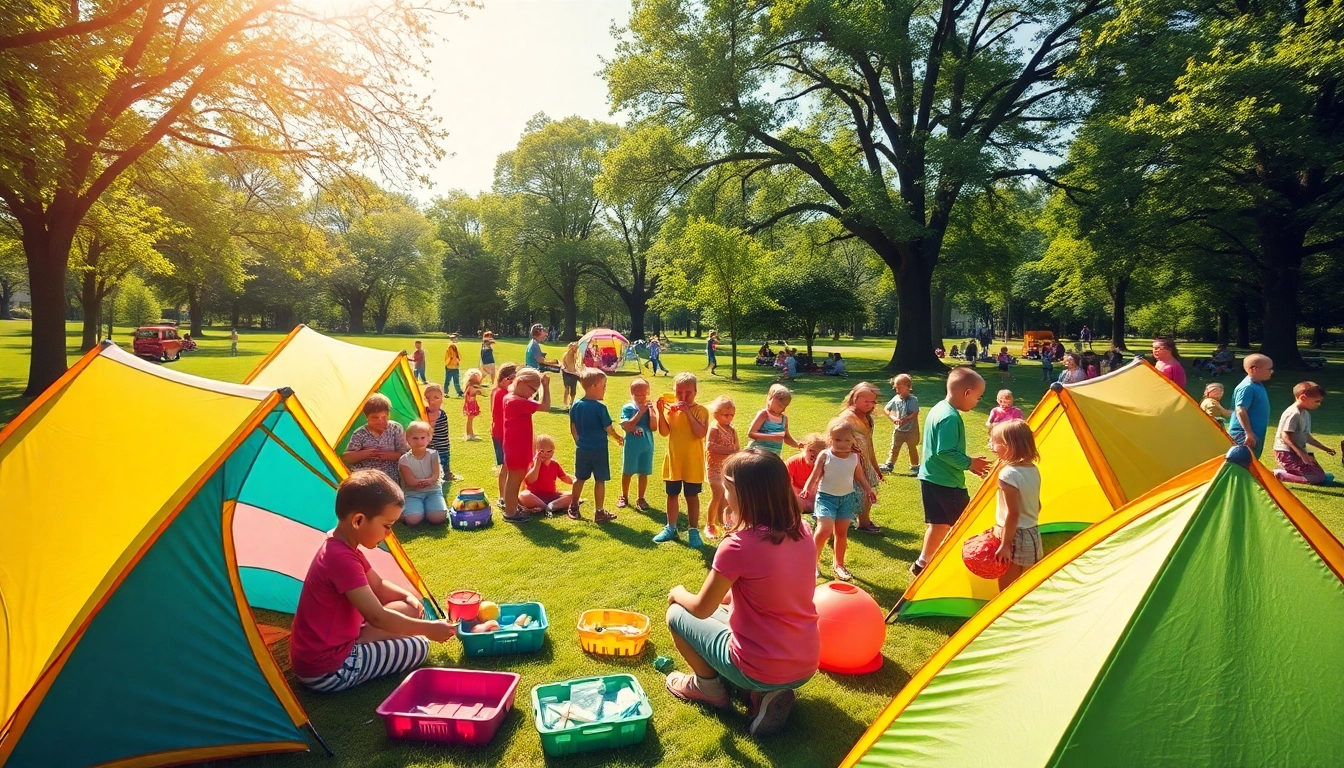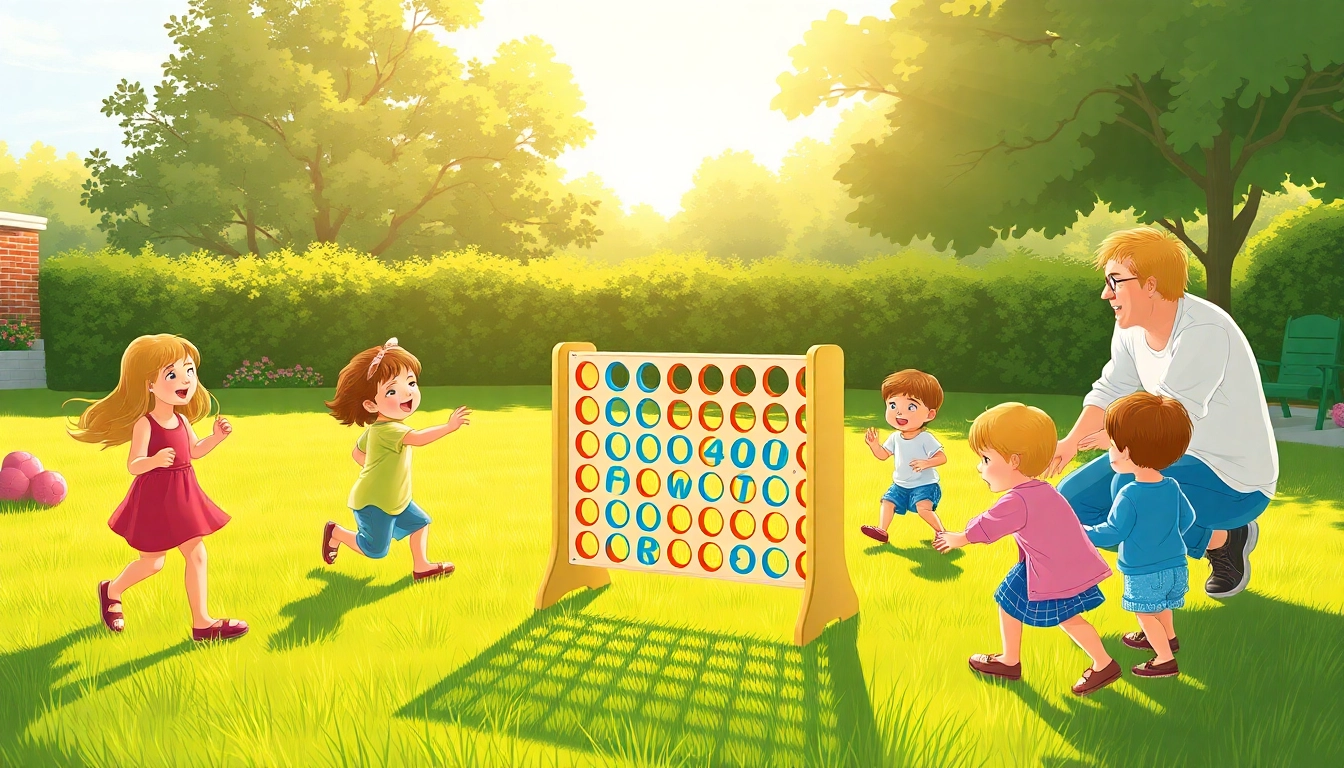Understanding the Importance of Holiday Camps
Holiday camps provide a unique opportunity for children to engage in enriching experiences during school breaks. These camps serve a dual purpose: to offer children a fun-filled environment while also giving parents a reliable solution for childcare. When looking into holiday camps, understanding their significance helps in recognizing how they contribute to the overall development of a child.
Benefits of Attending Holiday Camps
Holiday camps come with a plethora of benefits that extend far beyond mere entertainment. They foster personal development, social skills, and physical fitness. Some key benefits include:
- Social Interaction: Camps promote interactions among peers, helping children forge friendships and develop essential social skills.
- Skill Development: Through various activities, children can discover and cultivate new interests, ranging from sports to arts and crafts.
- Physical Activity: Holiday camps often include sports and outdoor activities that encourage physical fitness, essential for a healthy lifestyle.
- Independence: Being away from home for the day helps children build confidence and independence, preparing them for future challenges.
- Structured Environment: Camps offer a safe and supervised setting where children can explore their creativity and learn through structured activities.
Different Types of Holiday Camps
Holiday camps come in various forms, catering to different interests and age groups. Parents can choose from options such as:
- Sports Camps: Focusing on physical activities, these camps provide training in various sports, focusing on skill development and teamwork.
- Arts and Crafts Camps: These camps emphasize creativity with activities that inspire artistic expression through painting, sculpture, and crafting.
- Science and Technology Camps: Often themed around STEAM (Science, Technology, Engineering, Arts, Math), these camps engage children in hands-on experiments and projects.
- Adventure Camps: These camps usually involve outdoor activities like hiking, kayaking, or rock climbing, geared towards children who love the outdoors.
- Day Camps: Ideal for parents looking for a temporary solution, these camps operate during school holidays, providing structured activities during the day.
Key Considerations for Parents
When evaluating holiday camps, parents should consider several factors to ensure they choose the best option for their child:
- Child’s Interests: Does your child prefer sports, arts, or academics? Ensuring the camp aligns with their interests will keep them engaged.
- Camp Location: Proximity to home can ease logistical concerns and help parents manage drop-off and pick-up schedules effectively.
- Cost: Budgeting for the camp is essential. Prices can vary significantly based on the camp type and location.
- Staff Qualifications: Investigating the training and experience of camp staff is crucial for ensuring that children are in capable hands.
- Safety Measures: Understanding the camp’s safety protocols and the measures they take in emergencies can provide peace of mind for parents.
Activities Available at Holiday Camps
One of the main attractions of holiday camps is the variety of activities they offer. Engaging in diverse activities is vital for children’s development, as it enables them to explore different interests and skills.
Arts and Crafts Programs
Arts and crafts programs allow children to unleash their creativity and imagination. Some common activities include:
- Painting and Drawing: Children can experiment with different mediums and styles.
- Crafting: Activities may involve creating jewelry, sculptures, or recycled art projects, teaching resourcefulness.
- Creative Storytelling: Through collaborative storytelling projects, children can learn to express ideas and emotions through narrative mediums.
Sports and Outdoor Adventures
For children who thrive on physical activity, sports and outdoor adventures are integral parts of holiday camps. These activities include:
- Team Sports: Camps often offer soccer, basketball, and volleyball, which promote teamwork and camaraderie.
- Outdoor Exploration: Nature hikes, orienteering, and camping can stimulate a love for the outdoors and an appreciation of nature.
- Water Sports: Activities like swimming lessons or sailing teach essential water safety and skills.
Educational Workshops and Learning Opportunities
Many holiday camps integrate educational workshops that combine fun with learning. These may feature:
- Science Experiments: Conducting experiments can spark interest in scientific fields.
- Cooking Classes: Kids can learn basic cooking skills and nutrition, promoting independence and healthy eating habits.
- Guest Speakers: Inviting professionals from various fields to share their experiences can inspire children and expose them to potential career paths.
Choosing the Right Holiday Camps for Your Child
Finding the right holiday camp can be an overwhelming process for parents. It’s important to approach this thoughtfully, to ensure that the camp will meet the needs and interests of their child.
Assessing Your Child’s Interests and Needs
Start by discussing with your child what type of camp interests them most. Consider their hobbies and past activities. Engaging children in the decision-making process can lead to better experiences and more enthusiasm for attending the camp.
Evaluating Camp Safety and Accreditation
Assessing the safety records of potential camps is non-negotiable. Look for camps that adhere to local regulations and have proper accreditation. Check online reviews or references to learn about other parents’ experiences regarding the camp’s safety measures.
Understanding Costs and Scheduling
Finally, understanding the cost of the camp, including hidden fees, is critical. Many camps will have different pricing structures based on activities or optional add-ons. Ensure the schedule aligns with family obligations, and check for flexibility in drop-off and pick-up times.
Preparing for Holiday Camps
Preparation is key to ensuring a smooth transition into holiday camps for both children and parents. There are several elements to consider in this regard.
Essential Gear and Equipment
Most camps provide guidelines on what children should bring. Essential items may include:
- Clothing: Comfortable clothes suited for various activities, along with appropriate swimwear if applicable.
- Sunscreen and Insect Repellent: Protection from sunburn and insects is crucial, especially for outdoor camps.
- Personal Items: Labeling personal items like water bottles, hats, or sports gear can prevent loss and mix-ups.
Importance of Emotional Preparation
Children may feel nervous about attending camp, particularly if it’s their first time. Parents can help them emotionally prepare by discussing what to expect and emphasizing the fun aspects of camp. Providing reassurance can help alleviate anxiety.
Communication with Camp Staff
Establishing clear communication with camp staff can benefit both parents and children. Making sure you understand the camp’s policies and procedures can help mitigate concerns regarding safety and activities. Parents should also feel comfortable reaching out to camp leaders should any questions arise before or during the camp.
Making the Most of the Holiday Camps Experience
Maximizing the holiday camp experience goes beyond merely enrolling a child. Parents can play an active role in enhancing their child’s enjoyment and benefits from camp.
Encouraging Friendships and Social Skills
Encouraging your child to engage with peers and make new friends during camp can greatly enhance their experience. Discussing social interactions beforehand may help them feel more at ease, allowing them to break the ice with fellow campers.
Embracing New Experiences and Challenges
Encourage your child to participate in unfamiliar activities—this is where real growth happens. Facing and overcoming challenges can build resilience and confidence.
Post-Camp Activities and Reflections
After camp, engage your child in discussions about their experiences. This reflection reinforces what they’ve learned and helps parents gauge how well the camp met their child’s needs. Engaging in post-camp activities related to what they enjoyed can further enrich their experience.

